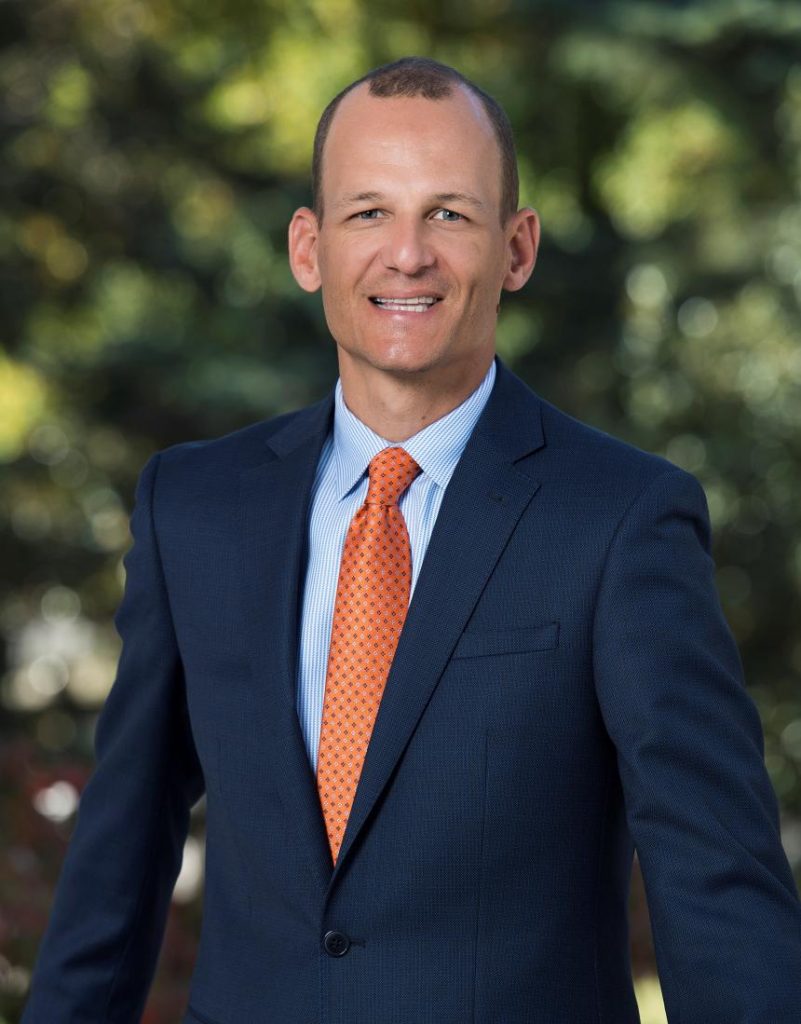Adult education programs are free or low-cost and can train people for high-paying, in-demand jobs. And in so doing, can change the life of an individual as well as the future of the entire family. So why don’t more people know about their local adult schools?
We caught up with Assemblyman Kevin McCarty to discuss his unique perspective on this issue—as a member of the Education Committee, but also as a former adult ed student himself.
Can you talk a little bit about your position on the Education Committee and what you do there in terms of budget?

I serve on the Education Policy Committee and that hears bills on K-12 education. The majority of stuff that gets done relates to how much it costs.
That is where I have the biggest fingerprints on education policy in California: I’ve been chairing the Education Budget Committee the last nine years. That oversees all of early education, TK-12 education, adult ed, community colleges and UC/CSU, as well as our financial aid programs in California.
What is the total budget amount that your committee is overseeing?
It’s over half of the state budget, so it’s over $100 billion.
As opposed to many other state legislators, you had a personal experience with adult schools. Can you talk a little bit about that?
I was a lackluster high school student. Just wasn’t very motivated for whatever reason, and lo and behold, at the end of my senior year, the counselor shocked me by saying that I wouldn’t be graduating high school. They said, ‘There’s this thing called adult school and you can go get your diploma and get your life back in order.’ So I did just that. It was called Winterstein Adult School over by Arden Fair Mall. It’s now a charter school. They helped me get my diploma in the summer and fall of 1990 and then I was able to enroll in a community college.
From your personal experience and from your experience as a legislator, what role do the California adult schools’ language courses, basic education courses and career development courses play in changing lives and helping our economy?
I don’t really think it’s adult school per se—I think it’s more education for older adults. That could be through traditional adult schools, K-12 school districts, community colleges and some of these private colleges. The reality is in this economy, to get a good job, individuals need more education. High school education just isn’t enough.
So it’s about making sure that after high school, or for those 25- to 40-year-olds, people can go and get further education, can get better job skills to have better employment opportunities. Then there’s lifelong learning and personal growth. A lot of older adults find opportunities for personal gain, self-improvement, and even better health by having continuing education.
Having a system so older Americans can continue to learn is a positive on multiple fronts: for the economy, for upward mobility for individuals and their families, and for the well-being of adults.
There are many competing demands for the state budget. How would you evaluate the impact of money spent on adult education?
I would say adult education is a small piece, around 1%, of the state education budget. So it’s not a lot. We have six million individuals in TK-12 schools in California, so adult school hasn’t always been a big priority. During the recession it was one of the first things that was cut.
But a lot of these programs in communities, like immigrant communities, help so much. They help people learn English, like refugees that have come over to America from Iraq and Afghanistan. The American military from those wars have also used adult ed for their basic skills before they even enroll in the community colleges.
Adult ed has a fingerprint in all communities throughout California.
What about in terms of dollar per dollar—and the impact of lower-cost adult ed changing lives and making a difference in the economy?
I don’t have a number for you, but it has a huge impact. It touches a lot of places that we’re trying to address: helping people learn English, helping people become U.S. citizens, helping people go back and get their high school diploma like I did, and helping people get more good job skills: welding or phlebotomist or cosmetology or early education certificates. We educate the workforce as well. So adult ed really touches on a lot of pieces of the education system, it’s not just one thing.
Given the importance of the programs and the tremendous community need for a trained workforce, can you talk about your efforts to make sure the school districts and community colleges take full advantage of their adult school funding?
Community colleges are really trying to step up on this because they’re losing students as a whole. The number of 18- to 21-year-olds in California has stabilized. Our population hasn’t been growing in the past few decades, so the number of people going from high school to community college is flat. We’re seeing community colleges across California nervous about population enrollment. Plus with the booming economy, and with unemployment under 3%, people are working. They don’t see a need to go to a community college. Community college is booming when there’s high unemployment. Whereas the K-12 and adult schools have been pretty stable as a whole. A few years ago, we stabilized their allocation budget and we got an increase in the last few years—in a bill I passed to make sure they can’t hoard reserves like before. So we’ll try to make sure the districts are properly spending the money they get allocated to them for adults. We think there’s adequate money to fund the adult education system.
Plus there is this emerging thing with adult education where a lot of charter schools are now doing their own adult ed, like Highlands Charter. They’re reaching communities that haven’t been touched before, like formerly incarcerated people, truck drivers, our Russian and immigrant communities.
There’s a program in the Central Valley that deals with ag and farm workers, maybe 30 years old, but they’re reading at a third grade level.
So there are some unique charter schools that are now doing adult education and also serving older Californians that really need more education.
I guess the big picture is that never before have there been so many options furthering education for adults. But one thing we try to push people away from are some of the for-profit colleges. Why would you pay so much money for something when you can get it for free? It’s about slick sales marketing practices, where they get people in and offer them a degree.
Our current vice president, Kamala Harris, went after some of these bad actors when she was attorney general here.
We’ve tried to curtail (this behavior too), but there’s always groups out there trying to take advantage of people. People in that situation are desperate. They’re well over 18 sometimes and didn’t always have a great education experience. They’re not doing very well in their economic mobility. They’re just looking for an out. So you see a TV commercial or flyer that says ‘pay this money and we’ll guarantee you this.’ You know, it looks very appealing.
We’ve heard numerous stories about the individuals who wanted to learn English but didn’t know about the local adult school program, or like what you just mentioned, individuals took out expensive loans to take a career development program, when there was a free—or very low-cost—and better program at the adult schools, but they didn’t know about it. What do you think we should do about that problem?
I think after COVID, we’ve learned that adults have different needs and expectations to focus on. They learned how to use Zoom, for example, and they may have kids themselves, so they want more flexibility. I think that’s one of the things the for-profit schools have done a great job at, they’re much more consumer-friendly. They’re about sales, and marketing, and they get people in the doors. You can enroll in an adult school through the school district, even the community college, usually twice a year—in the fall or spring. Whereas at these for-profit schools, you can enroll every Monday. Some of the courses are eight weeks and not 15 weeks. You can do the courses at night or on weekends, virtually, at your own pace. So they’ve been offering more flexibility. Californians find that very attractive.
Offering flexibility is something that we really need to do. I don’t think the answer is to do everything online—a YouTube University. A large part is because a lot of the people that are going to adult school haven’t had a stellar academic career in the first place. Maybe they’re not great independent learners and they need hands-on instruction and engagement with their teachers, professors and counselors. Having a real human touch is a key to success as well.
You’re really encouraging the adult schools and community colleges to develop more flexibility in their programming, and then also to step up their outreach so people know that what they’re doing.
I go visit these programs sometimes. I went to American River College, and they have this welding program and a culinary program. If you go through it, you’re guaranteed a job. The jobs for the welders are around $100,000 year. But if you drive 5 miles down the road throughout Sacramento, you see a bunch of people hanging around, not gainfully employed. If you pulled over and said, ‘Do you know about this program 5 miles down the road that has a path for you to have a career?’ Maybe they’d be signing up right away, but we don’t always connect these two things, and that’s one of the frustrations. I think we really need that in California, because we need people to succeed for their own sake, and for our economy’s sake.
Can you talk a little bit about your legislation on 1491?
I don’t think it’s a panacea, but it’s one piece of the TK-12 adult education program in California. Some school districts were reporting reserves. A few years ago, we capped their reserve—how much they could have in the account.
So 1491 essentially did two things: make sure that districts don’t hoard money in their adult programs and reserve accounts, and that they’re actually spending it, which they should be, in providing programs to Californians.
When we talked a couple of years ago, one thing I thought you had great insight on was that many of the legislators and the staff members attended four-year colleges—many California four-year colleges—and so were very familiar with them. They did not have your experience with the adult schools and so they weren’t as cognizant of the impact that adult schools were having. What do you think the adult schools should do to tell their story better?
I don’t know if my colleagues didn’t have the support threshold in their own minds for adult ed, but they just didn’t have the personal knowledge of it. There’s actually one other woman in the Assembly, Assemblymember Wendy Carillo, who went to adult school as well. There used to be another woman, Assemblymember Patty Lopez. I think adult schools are very popular in every district because there are so many of them and every community knows them. It’s so wholesome to see people learning English, taking ESL classes, taking citizenship classes, and becoming an American. Most adult schools invite their elected officials to come to those ceremonies.
I think people generally support them. We have research that shows around two million more Californians with degrees and certificates are needed by 2030. That’s not college degrees, that’s certificates. It’s a big piece of our economy in California, our economic model.
Anything else you’d like to add?
If you look at our economy in California, you know the haves and have nots. People who have resources and people that don’t. People have questioned, in the last decade or so, the value of college and whether or not all this college debt is worth it for people. But what is absolutely not debatable is that to get a good job in America, in California, you need more than high school. You need more education, and so we we need to have lots of options for Californians to get more skills and get more training so they can fill the jobs the employers (need filled), but also so they can get an economic ladder to success for themselves and their families.






Be the first to comment on "Why adult education in California shouldn’t be a best kept secret"